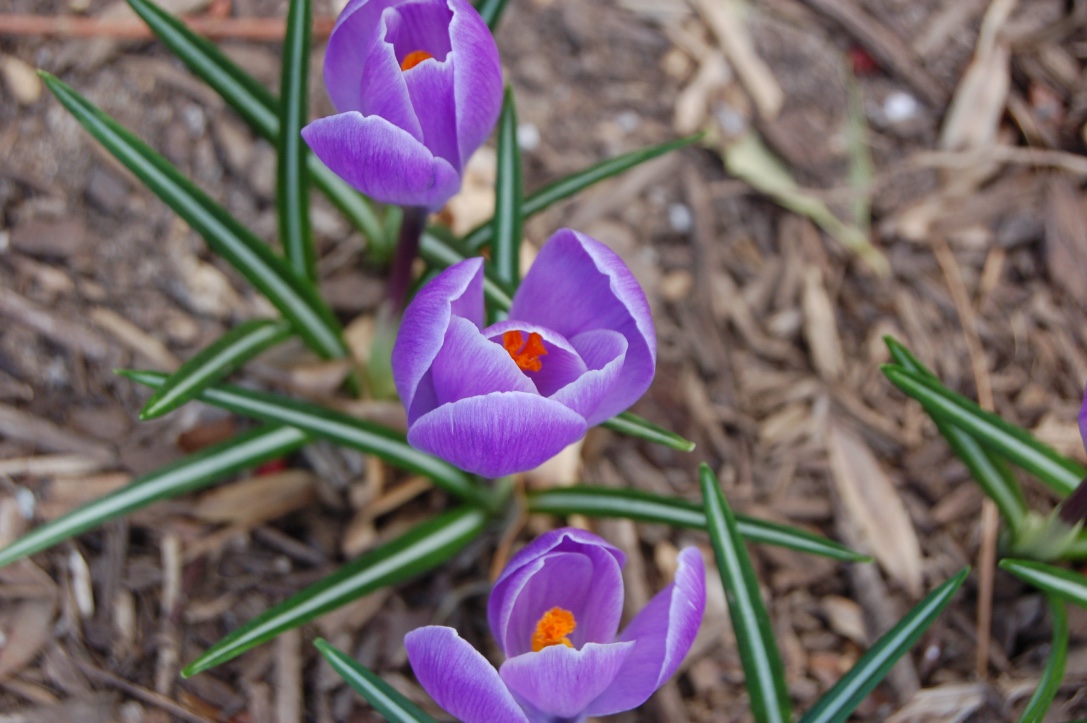I love seeing the spring flowers break through the ground at this time of year. That first crocus blooming on a chilly day always makes me smile. When I hear the sound of robins chirping in the trees, I think that they, too, are excited for warmer weather and sunnier days.
But, for some people, springtime isn’t always a happy, hopeful time of year. You might feel disconnected from the people in your life and wonder what you’re doing wrong. Maybe you’re feeling that it’s time to make some changes in your life, but you don’t know where to start.
Depression and anxiety make it hard to grow and change
If you feel stuck, the changes spring brings can be a constant reminder of your immobility, which can bring on feelings of intense anxiety and depression.
Maybe you feel stuck because:
- You lack motivation.
- Your inner-critic is harsh or demanding
- The idea of making changes leaves you anxious or scared.
- You don’t believe that you have much to offer.
- You get overwhelmed easily.
- You feel disconnected or numb.
- You yearn to connect with others but fear rejection.
Often, feelings of inadequacy or inferiority generate fears that keep you stuck. Then you feel bad about yourself because you worry that you won’t ever move forward or make changes. The more you avoid making changes, the worse you feel, and you get caught in a cycle that spirals downward and leaves you feeling anxious and depressed.
Practicing self-compassion can help ease depression and anxiety
Instead of beating ourselves up for not making changes, or telling ourselves we’re lacking in some way, let’s make spring a time to change how we think about ourselves!
If we can learn to see ourselves with compassion, to embrace our imperfections and accept our fears, we can start to embrace differences in others. This opens us up to the possibility of new connections.
When we allow ourselves to be human, to make mistakes and respond with compassion, we begin to understand that we’re not alone in our struggle. Our sense of isolation recedes, the self-judgment softens, and that can ease the anxiety and depression.
What is self-compassion?
Self-compassion sounds like a great idea, but what exactly does it mean? Through extensive research, Dr. Kristin Neff found that self-compassion has three components—self-kindness, common humanity and mindfulness. You can read more about her findings here.
5 steps to help you cultivate self-compassion
What does practicing self-compassion look like in day-to-day life? Here are some things that have worked for me and for my clients:
- If you’re always beating yourself up about mistakes or things you wish you’d done differently, remind yourself that we all struggle from time to time. Everyone has challenges. In fact, you probably know someone who’s having hard time right now, and there are probably people in your community you see every day who are struggling, and there are definitely people all over the world who are experiencing their own challenges. So in these difficult moments remind yourself, “This is really hard right now. I’m struggling, and we all struggle at times because we’re human.”
- Practice self-compassion and loving kindness meditations.
- When you feel anxious or stressed, place your hand on your heart, close your eyes and tell yourself, “I’m here. I will always be here, and I will always love you.” Sometimes making a loving statement to yourself is difficult. If this statement is too hard, instead you can say, “I am here and my intention is to love you.”
- Practice mindfulness. This helps you understand that although the present circumstance might be hard, life is full of ups and downs, and things won’t always be as hard as they are right now.
- Imagine what someone close to you might say to you if he or she knew you were having a hard time and repeat those words to your self.
If you would like help cultivating and growing your self-compassion and need some guidance for your journey, please email or call me at 410-340-8469.
Elizabeth Cush, MA, LGPC is a therapist and the owner of Progression Counseling in Annapolis, Md. She helps busy, overwhelmed men and women manage their anxiety and stress so they can live their lives with more ease, contentment and purpose.
Photos courtesy of Elizabeth Cush and Brooke Cagle for Unsplash.




